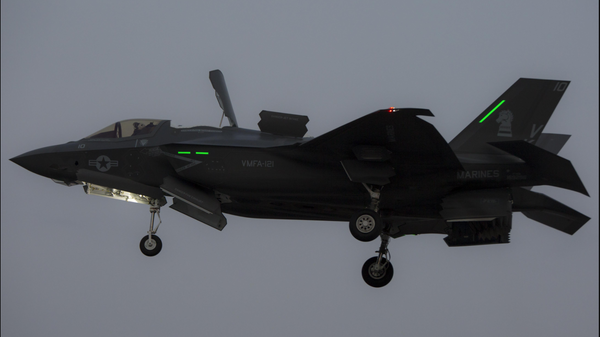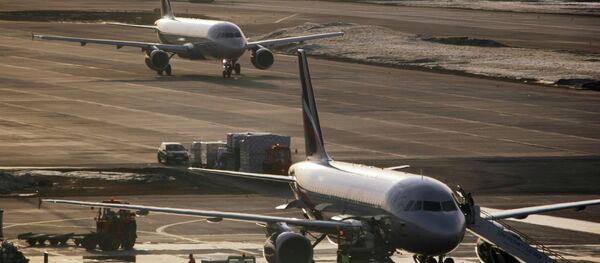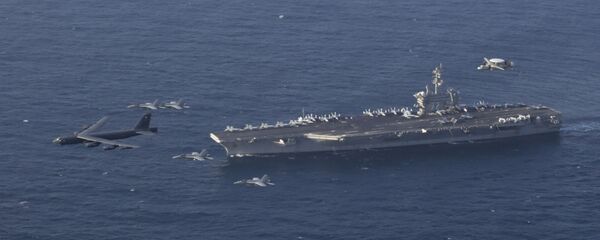According to a report by Military.com, pilots will be able to earn bonuses of up to $280,000 starting in 2020 if they agree to continue flying for the Marine Corps for another eight years. The new figure represents a $70,000 increase from the largest bonus currently offered by the service.
The bonuses are mostly aimed at captains and majors who are flying the F-35 Joint Strike Fighter, F/A-18 Hornet, AV-8 Harrier, MV-22 Osprey, C-130 Hercules, UH-1 Huey, AH-1 Cobra and CH-53 Stallion, the report explains.
"I hope our aviators see this expanded bonus program as a genuine effort to keep their talent and leadership in the squadrons to continue flying and mentor the next generation of aircrews," Lt. Gen. Michael Rocco, a helicopter pilot stationed in Quantico, Virginia, said.
Last year, pilots wanting to qualify for the bonus program were required to commit to either two, four or six more years of service. However, in 2020, pilots who want to take advantage of the program in general must sign a contract for at least three additional years. The option to fly for three more years is only available to pilots who have already served for 14 years. Pilots who want to take home the highest bonus totals must sign on for eight more years.
“By offering the [aviation bonus] program to these seasoned majors, the Marine Corps can retain that talent for three years, which will most likely carry them to the next rank,” Maj. Craig Thomas, a spokesman for Manpower and Reserve Affairs, told Military.com.
Although some pilots will be able to earn up to $280,000 in bonuses, pilots will not be able to switch out for smaller, lump-sum bonuses like they have been able to do in previous years.
The aviation bonus program next year will also be available to pilots who have served more than 14 years, a change from this year’s program.
Although weapons systems officers (WSO) were able to accrue as much as $80,000 in bonuses last year, in 2019, such opportunities will not be available to Marines in such specialties.
"We have enough Marine officers filling those roles," Thomas said. "Thus, an incentive is not needed for that aviation community."




